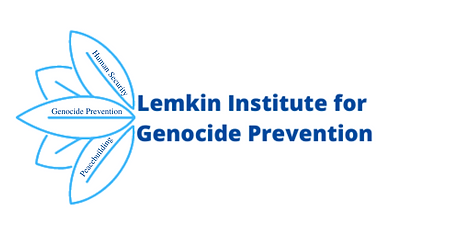History threatens to repeat itself as horrors of Darfur genocide resurface in Sudan
Diplomats and aid agencies warn the conflict is intensifying, spreading and beginning to echo the atrocities of 20 years ago

As the World Food Programme’s Chad director last week described the scale of the refugee exodus from the Sudan conflict, he disclosed a chilling detail.
The previous week alone some 20,000 had taken refuge in Chad, adding to a total of nearly 700,000 who have fled the country since April and another 2 million who have moved internally.
Among those crowds, it was noticeable that the refugees were mainly women and children and their menfolk were missing.
Pierre Honnorat said: “We can see that they have suffered, many lost family members, and we don’t even dare ask them, ‘Where are the men?’ The answer from the mothers is often that they were killed. So, you just see many women, many children.”
Three months after Sudan was engulfed in open warfare between rival military factions, diplomats and aid agencies warn the conflict is intensifying, spreading and beginning to echo the horrors of the Darfur war of 20 years ago.

For many of those now fleeing into Chad, history is repeating itself and it is not the first time that war has uprooted their lives. Many had been living in Sudanese camps for years after being forced from their homes two decades ago.
That conflict and resulting genocide from 2003 onwards was one of the deadliest of the 21st century so far, but the recent wave of violence has increasingly come to resemble the slaughter and atrocities of that period.
What started as a fight between the Sudanese army led by the country’s de-facto president, Gen Abdel Fattah al-Burhan, and a paramilitary group called the Rapid Support Forces (RSF) led by his deputy, Gen Mohamed Hamdan Dagalo, has rekindled ethnic bloodletting and risks getting worse.
One senior Western diplomat said the country is now seeing “extremely hideous and troubling ethnic violence, with widespread reports of atrocities against civilians on an ethnic basis”.
“We see the risk that the conflict transitions from just the army and RSF, to being more widespread. That would have a devastating impact for the people of Sudan.”
A human rights catastrophe
The violence of 20 years ago escalated into what became known as the first genocide of the 21st century.
At the time, ethnic African rebel groups in Darfur took up arms against the Khartoum-based, Arab-dominated government of Omar al-Bashir, demanding more autonomy. To subdue the uprising, the government mobilised local Arab militias known as the Janjaweed, who conducted a campaign of killing and ethnic cleansing against the population. At least 300,000 people were reported killed and nearly three million displaced.
The killing lasted for several years, until a joint United Nations and African Union peacekeeping force helped restore stability.
When the fighting between the army and RSF erupted in mid-April this year, it at first appeared centred around the capital, Khartoum, but it has since spread back to Darfur.
UN and AU peacekeepers left Darfur at the end of 2020 and tensions between the Arab community and ethnic Africans such as the Masalit people have again been worsening for some years.

Violence has been on the rise since 2021, with Arab militia and the RSF, which evolved out of the Janjaweed, accused of attacking civilian refugee camps in towns including Geneina.
Hundreds were reported killed in 2021 alone, even before the nationwide eruption of hostilities.
The open warfare across the country has now appeared to sharply escalate the killing in Darfur.
Laeticia Bader, Horn of Africa director for Human Rights Watch, said: “Some of the trends we are seeing right now are very similar to what communities in the early 2000s were facing in terms of massive pillaging, the burning and the targeted killing.”
Human Rights Watch earlier this month said it documented the summary execution of 28 Masalit in late May by RSF and Arab militia forces in the town of Misterei. Men had been rounded up and killed, or hunted down in their homes.
The UN also last week said 87 bodies had been uncovered in a shallow grave in Geneina, many of them Masalit.
Karim Khan, prosecutor of the International Criminal Court, last week told the United Nations: “We now are in peril of allowing history to repeat itself, yet again, before our eyes.
“We are not on the precipice of a human rights catastrophe, we are in the midst of one.”

The court has been pursuing Janjaweed commanders and Sudanese ministers, as well as Omar al-Bashir, for war crimes from the earlier Darfur war, and has now said it will expand its investigations to include the current violence.
Meanwhile, as well as the atrocities in Darfur, fighting continues between the army and RSF in cities such as Khartoum, Omdurman and El Obeid.
An official tally of more than 3,000 killed nationwide is thought to be a significant undercount. The figures only include those brought to hospitals, but the fighting means many healthcare centres are closed and people are scared to travel, even for medical attention. Large numbers are thought to be buried uncounted.
Ceasefire and truces have not held and diplomats close to attempts at mediation say neither side appears to be taking negotiations seriously.
Britain last week placed sanctions on six Sudanese businesses used to channel funds into the warring parties, in an attempt to pressure them to the negotiating table.
However, with funding to the warring sides largely flowing through the Gulf, UK sanctions may be largely symbolic.
“The trajectory is bad and has the potential to get worse, ” said the senior Western diplomat.
(c) 2023, The Telegraph
https://www.telegraph.co.uk/global-health/terror-and-security/darfur-genocide-history-repeats-sudan-conflict/



